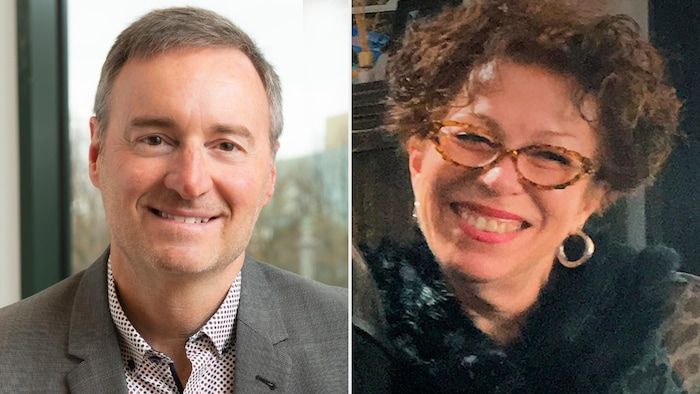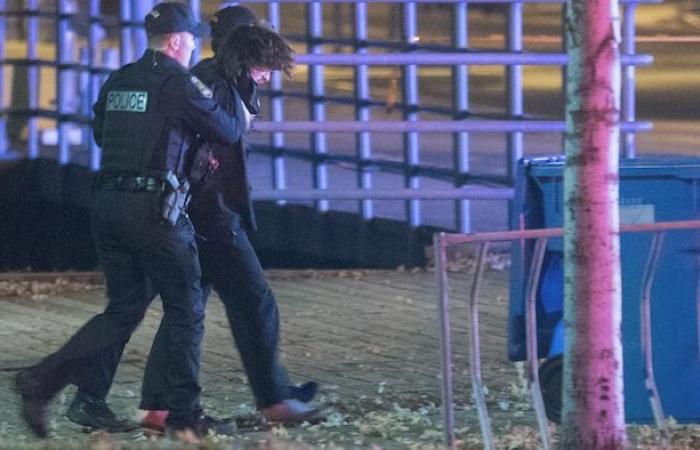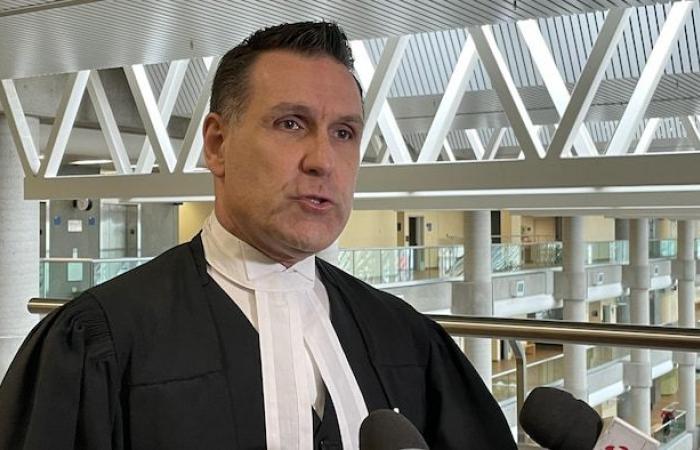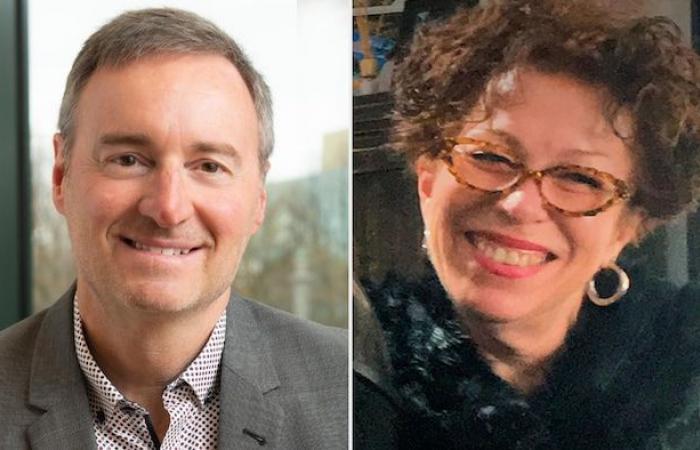The appeal aimed at overturning the verdict of criminal responsibility pronounced against Carl Girouard, the author of the attacks that occurred in Old Quebec on October 31, 2020, was heard Tuesday at the Quebec courthouse.
On May 20, 2022, the man from Sainte-Thérèse, in the Laurentians, was found guilty of the murders of François Duchesne, 56, and Suzanne Clermont, 61.
He was also found guilty of five attempted murders for attacking other passers-by in Old Quebec during the disastrous Halloween evening of 2020.
Life imprisonment
On June 10, 2022, Carl Girouard was sentenced to life imprisonment, with no possibility of parole for 25 years. The same day, he appealed his conviction for first-degree murder.
Girouard did not attend his appeal hearing Tuesday. The hearing was chaired by Judge Martin Vauclair of the Quebec Court of Appeal.
Open in full screen mode
Carl Girouard was arrested on the night of October 31 to November 1, 2020 near Espace 400e. (Archive photo)
Photo: Reuters / Steve Jolicoeur
The appellant’s lawyer, Me Pierre Gagnon, criticized the trial judge, Richard Grenier, for having erred in omitting, when instructing the jury, a directive concerning the silence of his client during the first hours of his interrogation.
According to the lawyer, this omission cast doubt on the defense thesis that Carl Girouard’s mental state made him not criminally responsible for the murders for which he was convicted in the first degree.
The absence of a directive, argued Mr. Gagnon, rather favored the prosecution’s thesis according to which his client’s choice to remain silent demonstrates that he was conscious at the time he committed the attacks.
Delirium
Me Gagnon argues that his client’s refusal to speak is not incompatible with the diagnosis of the defense psychiatrist, Gilles Chamberland, according to whom at the time of the attacks, Carl Girouard was prey to a schizophrenic delusion preventing him from carrying out the difference between good and evil.
The caller may be aware of certain things [comme son droit de garder le silence] even in the mental state described by Dr. Chamberland
explained the lawyer.
Open in full screen mode
Me Pierre Gagnon contests the verdict of criminal liability pronounced against his client. (File photo) (File photo)
Photo : Radio-Canada / Camille Carpentier
He also criticizes the trial judge for not having instructed the jury to ignore the opinions expressed by the prosecution’s expert psychiatrist, Sylvain Faucher, during his testimony.
Me Pierre Gagnon maintains that Dr. Faucher exceeded his field of expertise by developing the hypothesis according to which Carl Girouard committed the attacks in Old Quebec due to an alleged resentment towards society.
Gas cans
This hypothesis is linked to the discovery of cans of gasoline in his car following his arrest. During the trial and during his interview with Dr. Faucher, Carl Girouard said that he had planned to burn down the family residence, where his mother and brother lived, in order to to show oneself courageous enough in the eyes of one’s alter egos and thus serve as an example to them
.
Dr Faucher associated this incendiary project with the resentment he harbored towards members of his family. Pierre Gagnon affirms that this hypothesis allowed the psychiatrist to conclude that the actions committed by Carl Girouard on October 31, 2020 stem from resentment towards society in general.

Open in full screen mode
Carl Girouard was found guilty of first degree murder against François Duchesne and Suzanne Clermont. (Archive photo)
Photo : Radio-Canada
The appellant’s lawyer states that there is no evidence to support the hypothesis of resentment, whether in relation to the plan to burn down the family residence or the acts committed on the evening of the Halloween party.
Extremely dangerous
Me Gagnon believes that Judge Grenier should have issued a specific instruction to the jury, because personal opinion
from Dr. Faucher regarding this alleged resentment was likely to enhance his own conclusions regarding the criminal responsibility of the appellant who, according to him, also experienced resentment towards society
.
The expert cannot develop a theory on elements that have not been presented in evidence. The risk of undue influence that one’s words are retained by even one member of the jury is extremely dangerous
warned the lawyer.
The three judges who heard the appeal reserved the matter.








